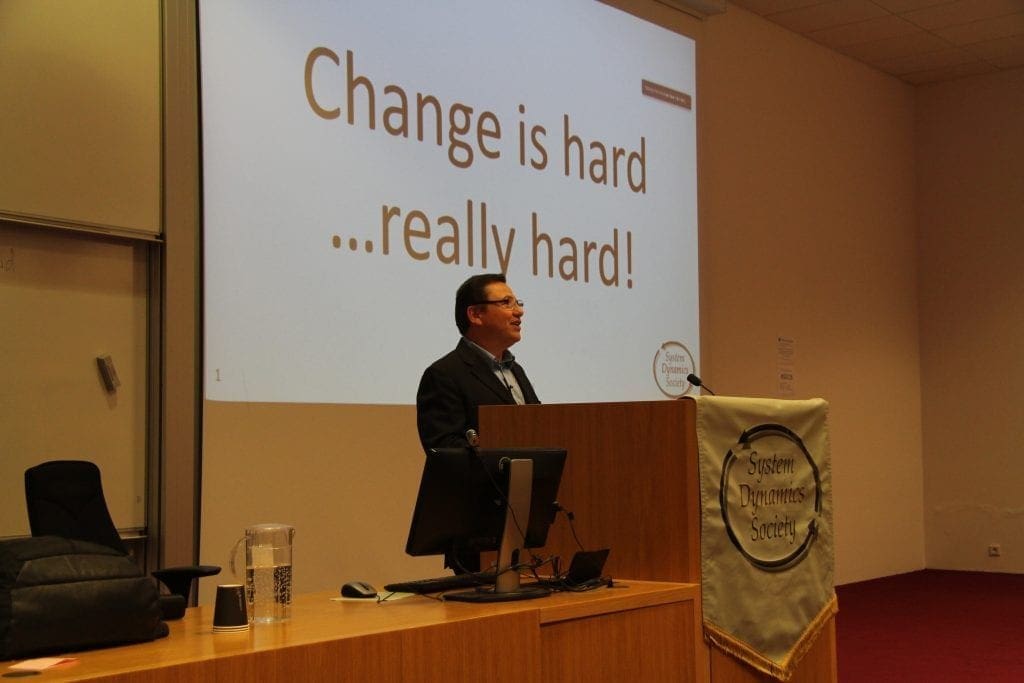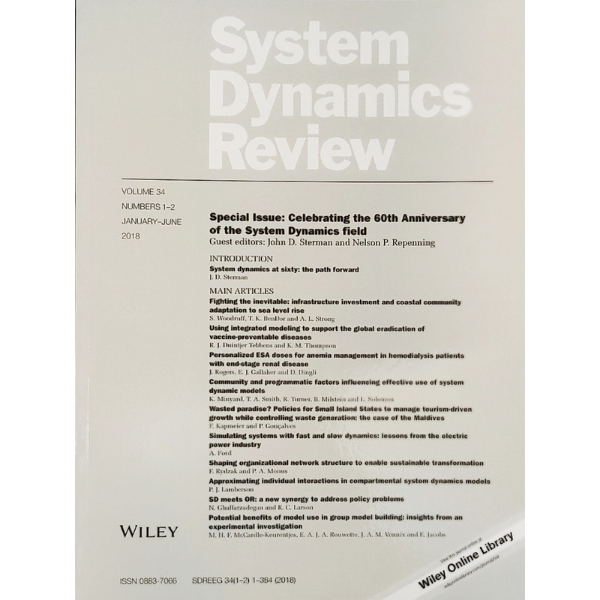Scholars carry out academic research in System Dynamics in universities and national and corporate research labs around the world. In universities, System Dynamics scholars are found in schools of business, engineering, and science, among others. System Dynamics research includes theorizing about, empirically testing and quantifying the processes that underlie the dynamics of diverse social, technical, natural and biological systems. From organizational transformation, project management and process improvement to macroeconomics and economic cycles, climate change, epidemiology, body weight dynamics, and the evolution of ecosystems, System Dynamics research has deepened our understanding of the origin of dynamics, tested hypotheses empirically, and informed policy analysis.
Understanding Human Performance in Dynamic Environments
Experimental studies have explored how human subjects make decisions and learn in dynamic tasks, where individual actions change the state of the system and the rewards and opportunities in future. These studies motivate the use of formal models to support improvements in human mental models and point to better designs for simulation based learning environments.
Faclitating Group
Decision Making
Innovations in group model building techniques to enhance systems thinking and improve buy-in is an important area of continued research. The process of System Dynamics modeling with clients is leveraged to bring diverse stakeholders together, improve their mental models, and enhance policy.
Improving
Change Pedagogy
From K-12 grades, to universities and graduate schools, to executive education, to creating learning environments with management flight simulators for business leaders and government policy makers, System Dynamics researchers not only develop and use the tools in these contexts but carry out research on their effectiveness to help improve protocols for their use.
Expanding
Analytical Toolbox
Methods for estimation of dynamic models, optimization and control of these systems, formalizing the links between model structure and behavior, and decision analysis using these models are common research targets. This type of research can be heavily analytical and often closely interacts with literature in control theory, econometrics, operations research and decision analysis, among others..
our conference

The Society offers many opportunities to present your work. Our International System Dynamics Conference is held annually in the summer in locations alternating between the United States and the rest of the world. Hundreds of practitioners share there work in plenary, parallel, poster, feedback, and work-in-progress sessions. This is an opportunity to network and learn form others in the field while getting visibility for your work.
our journal
In addition to the System Dynamics Review, our flagship journal for the field, System Dynamics research has appeared in over 500 academic journals, from Administrative Science Quarterly to Zeitschrift fur Physik, including the top publications in disciplines as diverse as management, public policy, and healthcare. The results have also had significant real world impact on important management and policy problems, such as climate change negotiations, healthcare reform, and polio eradication, to name a few. Work in System Dynamics has won many awards, not only from the Society, but from many different academic societies outside the field.

literature review
To tag a bibliography entry as a literature review, email raquel@systemdynamics.org.
opportunities

REFERRAL
The Society offers a referral service to match members offering services with those looking to learn or apply systems thinking or System Dynamics. Fill out the form to show your availability.
VOLUNTEER with THE SOCIETY
We need more experienced system dynamicists to help the Society to further promote System Dynamics.
Help shape the Society’s goals and strategies. Self-nominate or nominate somebody else for Policy Council positions.

